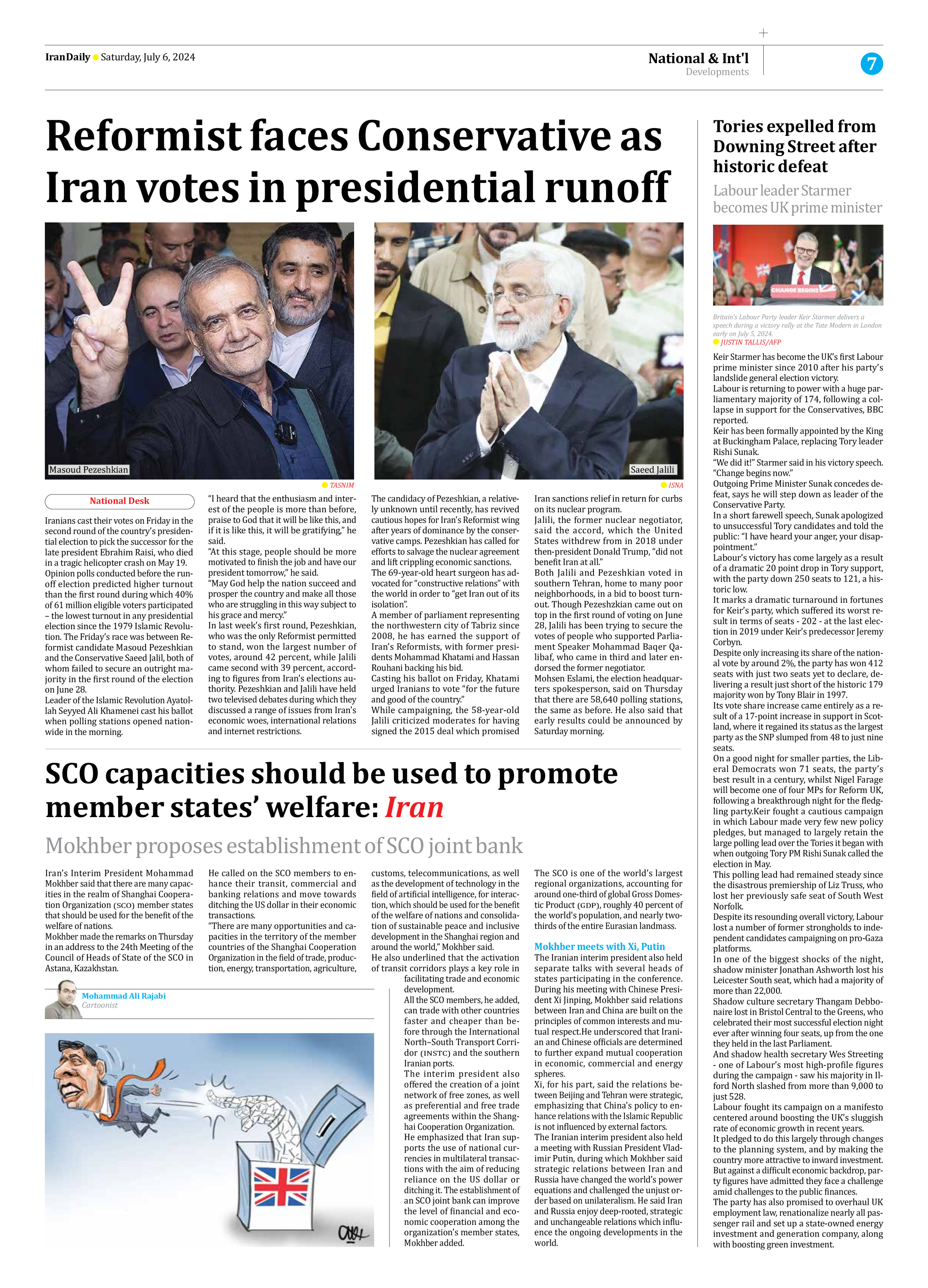
Copy in clipboard...
Reformist faces Conservative as Iran votes in presidential runoff
Opinion polls conducted before the runoff election predicted higher turnout than the first round during which 40% of 61 million eligible voters participated – the lowest turnout in any presidential election since the 1979 Islamic Revolution. The Friday’s race was between Reformist candidate Masoud Pezeshkian and the Conservative Saeed Jalil, both of whom failed to secure an outright majority in the first round of the election on June 28.
Leader of the Islamic Revolution Ayatollah Seyyed Ali Khamenei cast his ballot when polling stations opened nationwide in the morning.
“I heard that the enthusiasm and interest of the people is more than before, praise to God that it will be like this, and if it is like this, it will be gratifying,” he said.
“At this stage, people should be more motivated to finish the job and have our president tomorrow,” he said.
“May God help the nation succeed and prosper the country and make all those who are struggling in this way subject to his grace and mercy.”
In last week’s first round, Pezeshkian, who was the only Reformist permitted to stand, won the largest number of votes, around 42 percent, while Jalili came second with 39 percent, according to figures from Iran’s elections authority. Pezeshkian and Jalili have held two televised debates during which they discussed a range of issues from Iran’s economic woes, international relations and internet restrictions.
The candidacy of Pezeshkian, a relatively unknown until recently, has revived cautious hopes for Iran’s Reformist wing after years of dominance by the conservative camps. Pezeshkian has called for efforts to salvage the nuclear agreement and lift crippling economic sanctions.
The 69-year-old heart surgeon has advocated for “constructive relations” with the world in order to “get Iran out of its isolation”.
A member of parliament representing the northwestern city of Tabriz since 2008, he has earned the support of Iran’s Reformists, with former presidents Mohammad Khatami and Hassan Rouhani backing his bid.
Casting his ballot on Friday, Khatami urged Iranians to vote “for the future and good of the country.”
While campaigning, the 58-year-old Jalili criticized moderates for having signed the 2015 deal which promised Iran sanctions relief in return for curbs on its nuclear program.
Jalili, the former nuclear negotiator, said the accord, which the United States withdrew from in 2018 under then-president Donald Trump, “did not benefit Iran at all.”
Both Jalili and Pezeshkian voted in southern Tehran, home to many poor neighborhoods, in a bid to boost turnout. Though Pezeshzkian came out on top in the first round of voting on June 28, Jalili has been trying to secure the votes of people who supported Parliament Speaker Mohammad Baqer Qalibaf, who came in third and later endorsed the former negotiator.
Mohsen Eslami, the election headquarters spokesperson, said on Thursday that there are 58,640 polling stations, the same as before. He also said that early results could be announced by Saturday morning.







